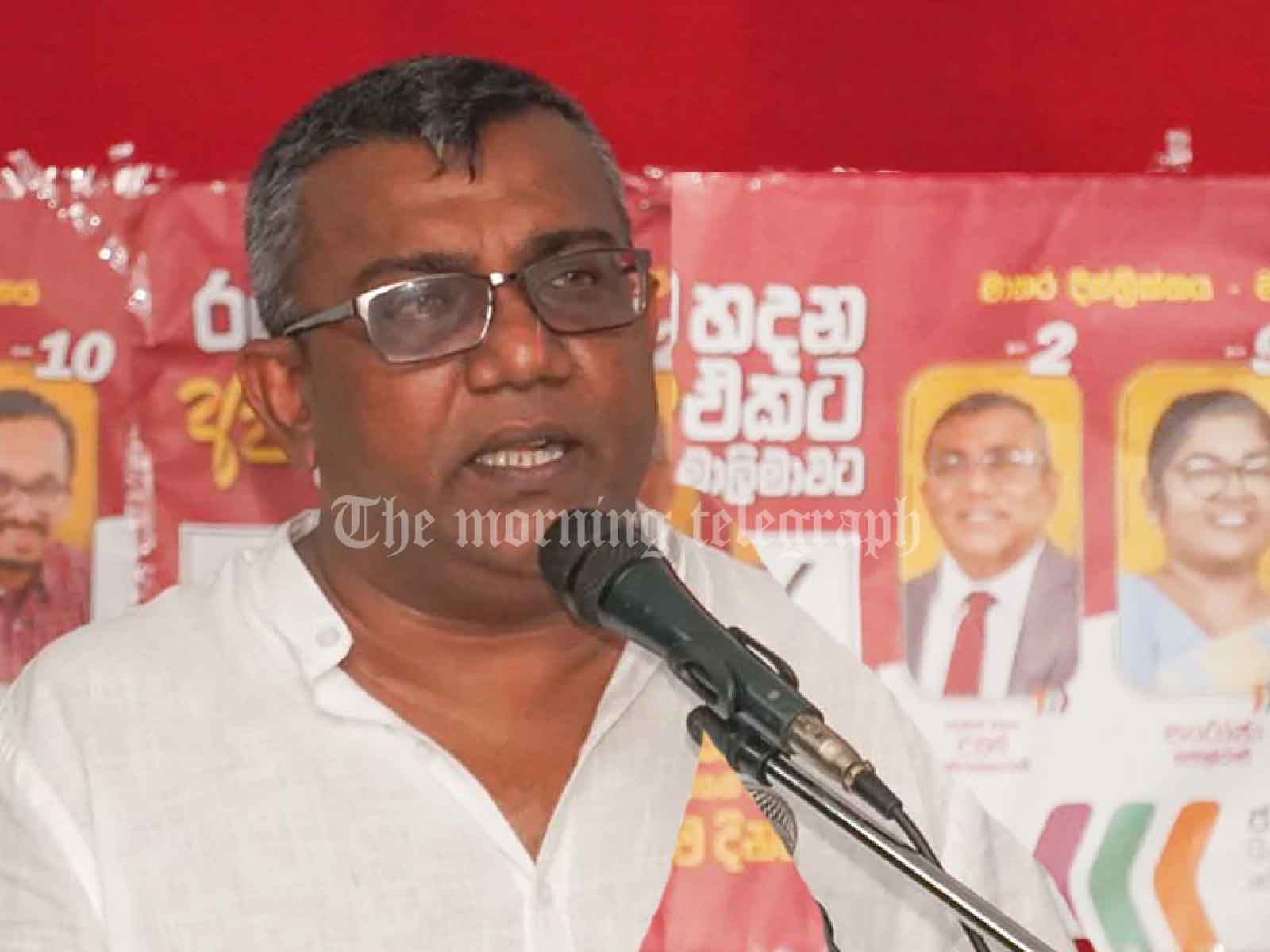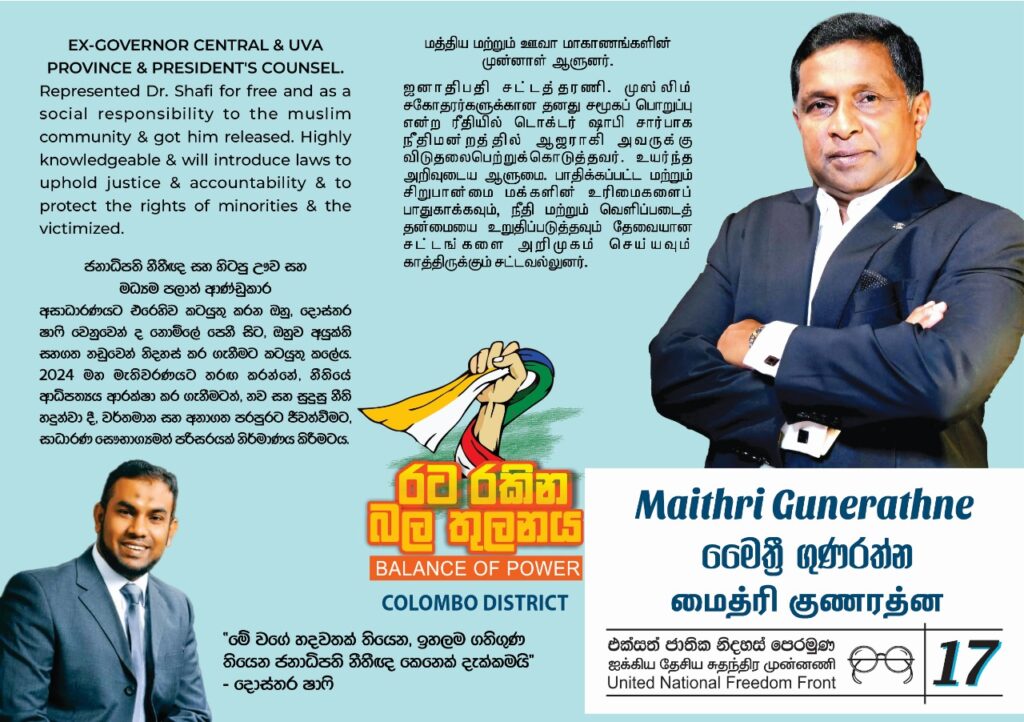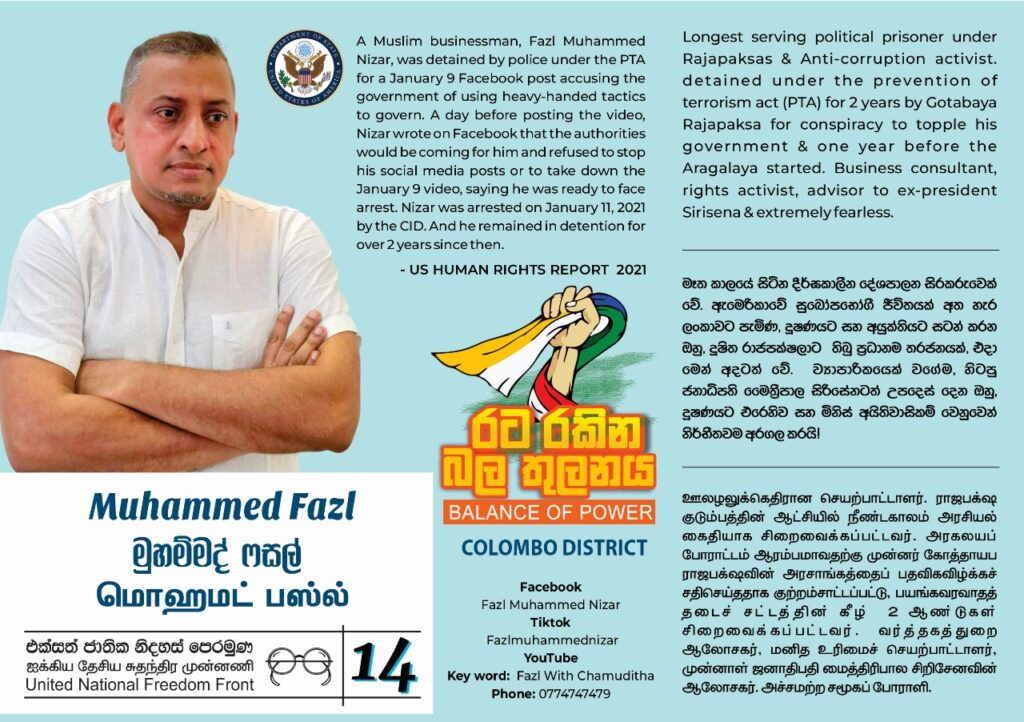
Upul Kumarapperuma, the Matara district candidate for the National People’s Power, emphasized the urgent need to reform Sri Lanka’s education system, particularly by moving away from rote memorization and towards fostering critical thinking skills in students. Speaking at an election rally in Matara, he outlined his vision for an education system that focuses on the holistic development of children, encouraging logical reasoning and practical learning.
“The current education system in Sri Lanka is outdated,” Kumarapperuma stated. “Children are forced to memorize information without understanding it, which limits their cognitive development. We need a curriculum that nurtures their ability to think critically and solve problems.”
Kumarapperuma also pointed to global trends where children are not pressured into formal academic learning until later stages, instead focusing on building social skills and emotional intelligence. “We need to shift the focus from textbooks to real-life skills. In many countries, children are taught to think independently and work collaboratively before they are burdened with academic subjects. We must bring that approach to Sri Lanka,” he said.
He further proposed a comprehensive overhaul of the school syllabus, aiming to introduce subjects and teaching methods that promote creativity, analytical thinking, and practical problem-solving. This would involve a reassessment of the examinations system, which he criticized for overemphasizing rote memorization.
“Our children are tested on subjects they don’t fully understand because they haven’t developed the logical thinking needed to grasp complex concepts. This must change,” he added.
Kumarapperuma also discussed the importance of fostering a supportive relationship between teachers and students. He pointed out that in the current system, young, enthusiastic teachers are often sent to remote areas, while senior teachers are placed in urban schools, leaving a significant gap in the quality of education across regions. “Teachers should be trained in modern educational techniques, and we need to ensure that their skills are utilized to their full potential, regardless of their location.”
Additionally, Kumarapperuma recognized the pressure many parents place on their children to achieve academic success, often without acknowledging that not all children excel in traditional subjects. “Every child has unique talents, and we need to identify and nurture these abilities. Through targeted assessments, we can understand each child’s strengths and help guide them towards a future that aligns with their skills and interests.”
In closing, Kumarapperuma emphasized the need for an education system that not only prepares children for exams but also equips them with the skills to navigate an increasingly complex and rapidly changing world. “Our education system must evolve to meet the demands of the future. We need to ensure that children are prepared for the challenges ahead, not just with knowledge, but with the ability to think critically and solve real-world problems,” he concluded.






